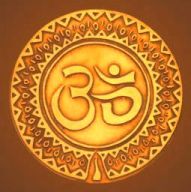The Way of the Spirit - Stories by M.A. Piggott
One day a man rushed in and flung himself face down before the Maharshi in a paroxysm of weeping. Great sobs tore his body. The Maharshi said nothing, and no one else dared. I watched the Maharshi. His head was turned aside, and he seemed indifferent. After some little time, the violence of the man's grief subsided and gradually he became quiet. Still no one spoke. Then at last, reverently the man rose and made a deep salutation. The Maharshi turned his head and smiled upon him. I felt suddenly as if all the flowers of the world had poured their fragrance into our midst.
|





|
Another time a poor creature who had been bitten by a snake was brought in and laid before the Holy Man. We all watched, fear gripping our hearts. Not so he, who sat looking into the far distance while the victim writhed in pain. Calm and compassion was in that look, and infinite peace. After what seemed like hours, the twitching ceased and the man appeared to sleep. Then the one who had brought in the sufferer gently touched him. The man rose, prostrated himself before the Maharshi and went out cured.
|





|
I was told that the Maharshi had his finger on the pulse of the whole Ashram. For instance, when in the hall, he was supposed to know what was going on even in the kitchen - and incidentally, I was surprised to find that he himself assisted in the cutting up of vegetables for the daily meal. I was also told that he knows what is passing in the minds of people. Of this latter ability I had a small personal experience.
It was in the afternoon and I was in the far corner of the hall reading the translation of a collection of aphorisms written in, to me, a flowery and artificial vein. I was bored and slightly irritated. Suddenly one of the devotees stood before me with another book in his hand - all the Ashram books were bound in brown paper and looked exactly alike - and said, "The Maharshi asked me to give you this. He thinks it will be more sympathetic to your type of mind." It was. How could the Maharshi know what I was reading? I was sitting far away, with many people in between us, blocking his line of vision. But I had previously noticed that many times he would answer a question in my mind, whilst it was only in the process of being formulated. This happened too often to be a coincidence.
|
|